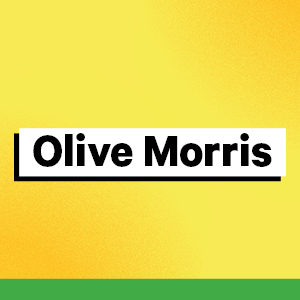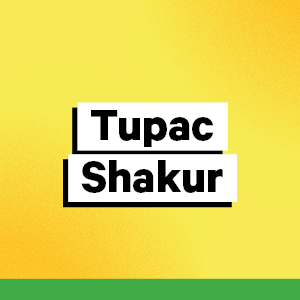
Ignatius Sancho – 1729-1780
Born on a slave ship, Sancho was a British composer, writer, and actor known for being the first Black Brit to vote in elections. He was also the first Black person to receive an obituary in British press following his death. Teaching himself to read and write, Sancho used his literacy to speak out against the slave trade and wrote music and poetry. He wrote extensive letters depicting the true nature of slavery the majority were sent to newspapers to support the abolition movement. Following his death, these letters were collated, published and used as evidence of the inhumane nature of slavery. during efforts to abolish the trade.

Olaudah Equiano – 1745-1797
Equiano was either born into slavery or enslaved as a child. He escaped slavery in 1766 by purchasing his freedom. After settling in England, he became an active abolitionist, agitating and lecturing against the cruelty of British slave owners in Jamaica. His autobiography was published in 1789 and is one of the first detailed, honest first-hand accounts of enslaved life. His book was so popular that in his lifetime it ran through nine English editions and one U.S. printing and was translated into Dutch, German and Russian. Equiano is often regarded as the originator of the slave narrative because of his first-hand literary testimony against the slave trade.

Philis Wheatley – 1753-1784
Phillis Wheatley was one of the best-known poets in pre-19th century America. Wheatley is considered the first African American author of a published book of poetry. Taken into slavery as a child she was purchased by tailor John Wheatly. She received a limited education yet published a book of religious poetry in 1773 that was widely acclaimed across the English-speaking world. Her poetry book was known throughout various circles and was even praised by George Washington. Her work was routinely challenged by contemporary racists who claimed it must have been the work of a white writer Wheatley had stolen from. Unfortunately, she saw little financial benefit and later died at a young age in poverty.

Ida B Wells-Barnett – 1862-1931
Wells-Barnett was a journalist, teacher, civil rights activist, and suffragette who was amongst the first to investigate and collect data on lynching in America. Whilst holding a co-ownership of the Free Speech and Headlight newspaper, she began an anti-lynching campaign, travelling to the South to investigate over 700 lynchings and publicise her findings. Confronting white suffragettes in the US on their choice to ignore lynching within their movement, Well-Barnett was ostracised and instead founded the National Association of Colored Women’s Club and was an uncredited founder of the National Association for the Advancement of Colored People (NAACP).

Bayard Rustin – 1912-1987
A close advisor to Martin Luther King Jr, Rustin was a lead organiser of the 1963 March on Washington; a nonviolent protest and rally to gather support for civil rights. Following the 1964-65 passage of civil rights legislation, he sought to improve the lives of working class and unemployed black citizens through allyship to the labour movement, and as a result became the leader of the A. Philip Randolph Institute. As an openly gay man, he later publicly advocated for gay and lesbian causes until his death in 1987.

John Henrik Clarke – 1915 – 1998
Clarke was an African American historian, professor and pioneer in the creation of the Pan-African and Africana studies and professional institutions in academia starting in the late 1960s. He was a prominent intellectual during the Black Power Movement, advocating studies on the African American experience and the place of Africans in world history. Largely self-taught and lacking formal qualifications, Clarke built an academic career against the odds, which he used to actively challenge Eurocentricity in the study of history and help re-centre black experience in the teaching of African history (which had been skewed by traditional scholars.)

Shirley Chisholm – 1924-2005
Chisholm was an American politician who in 1968 became the first Black woman elected to the United States Congress. She represented New York’s 12th congressional district, from 1969-1983, winning seven back-to-back elections. She paved the way for Black women in US politics. In the 1972 election, 36 years before Barack Obama and Hillary Clinton, she became both the first Black person and the first woman Democrat to seek a major party’s nomination for US President. She was consistently outspoken in advocating for women and marginalised communities.

Chinua Achebe – 1930-2013
Achebe was a Nigerian novelist, poet and critic; acclaimed for his unsentimental depictions of the social and psychological disorientation accompanying the imposition of Western customs and values upon traditional African society. He is regarded as the dominant figure of modern African literature. His first novel and magnum opus, Things Fall Apart, occupies a pivotal place in African literature and remains the most widely studied, translated and read African novel.

Stuart Hall – 1932-2014
Hailed as “the godfather of multiculturalism", Stuart Hall founded The New Left Review and transformed the academic study of culture within British academia. He was a Jamaican-British Marxist sociologist, cultural theorist and political activist. Hall was one of the founding figures of the school of thought that is now known as British Cultural Studies or the Birmingham School of Cultural Studies. He was also the President of the British Sociological Association from 1995-1997 and was also involved in the Black Arts Movement.

Wole Soyinka – 1934-Present
Soyinka is a Nigerian playwright, novelist, poet and essayist. He is also a political activist who founded, headed and participated in several political groups advocating for Nigerian democracy. From 1960-1964 he was the co-editor of Black Orpheus an important literary journal and then proceeded to teach literature and drama across various Nigerian universities. In 1986 Soyinka received the Nobel Prize for literature, he was the first Black African to be awarded this prize.

Barbara Jordan – 1936-1996
Jordan was an American lawyer, educator and politician who was a leader in the Civil Rights Movement. As a Democrat candidate Jordan was the first African American elected to the Texas Senate after Reconstruction. She was also the first Southern African American woman to be elected to the Unites States House of Representatives. In 1976, she became the first African American, and the first woman, to ever deliver a keynote address at a Democratic National Convention. She was also the first African American woman to be buried in the Texas State Cemetery. After retiring from politics in 1979 she became an adjunct professor teaching ethics at the University of Texas at Austin. Among other first, the U.S. National Archives described Jordan as the first LGBTQ+ woman in congress, she lived with her partner Nancy Earl for around 20 years.

Wangari Maathai – 1940-2011
Wangari Maathai was a Kenyan social, political and environmental activist. She was also the first African woman to win the Nobel Peace Prize in 2004. In 1977, she launched the Green Belt Movement to reforest her beloved country while helping the nation's women. Proving to be very successful, the movement is responsible for the planting of more than 30 million trees in Kenya and providing roughly 30,000 women with new skills and opportunities. Maathai was a Kenyan government minister from 2003 – 2005.

Muhammad Ali – 1942-2016
Ali (born Cassius Clay) was a boxer, philanthropist and social activist who is universally regarded as one of the greatest athletes of the 20th century. Ali became an Olympic gold medallist in 1960 and the world heavyweight boxing champion in 1964. Following his suspension for refusing military service, Ali reclaimed the heavyweight title twice during the 1970s, winning famed bouts against Joe Frazier and George Foreman along the way. Ali was also involved with the Nation of Islam and became good friends Malcolm X who became his spiritual and political mentor in 1962. Diagnosed with Parkinson's disease in 1984, Ali devoted much of his time to philanthropy, earning the Presidential Medal of Freedom in 2005.

Olive Morris – 1952-1979
Olive Morris was a Jamaican-born British-based community leader and activist in the feminist, black nationalist and squatters’ rights campaigns of the 1970s. At age 17 she was assaulted by Metropolitan Police Officers following an incident involving the SUS laws and a Nigerian diplomat. As a civil rights campaigner from Brixton, she founded multiple Black women's groups in London and Manchester. She won a place to study at the University of Manchester despite having no school qualifications and made immense contributions to Black communities. She died of cancer aged just 27 in 1979.

Tupac Shakur – 1971-1996
Tupac Amaru Shakur, also known as 2Pac and Makaveli, was an American rapper. He is widely considered one of the most influential rappers of all time. He is among the best-selling music artists, having sold more than 75 million records worldwide. Much of his music addressed contemporary social issues that plagued inner cities; he was considered a symbol of activism against inequality. Both his parents were political activists and members of the Black Panthers, from a young age he became involved with politics and even connect with the Young Communist League USA. Throughout his music career he set up groups like THUG LIFE, which was created for rap battles to get young Black men of the streets and to prevent gang wars.

Claudia L. Gordon – 1972-Present
Gordon is the first deaf Black female attorney in the United States. She is also the first deaf graduate of American University’s law school. She is currently working as a Senior Accessibility Strategy Partner at T-Mobile within its Diversity, Equity and Inclusion team. From 2002 to 2005 she was the national vice president of the National Black Deaf Advocates. She has held various roles in the public sector most notably as the associate director in the White House Office of Public Engagement, where she advised White House offices and senior officials, including former President Barack Obama on disability issues. This political appointment made Gordon the first deaf person to work at the White House in a detailee capacity.

Zadie Smith – 1975-Present
Since the release of her debut novel when she was just 24, Zadie Smith (1975 – present) has been regarded as one of the leading literary voices of her generation for novels like White Teeth and On Beauty. Smith's writing, informed by her background with its distinct racial and class intersections, provides profound insights into identity, and the human condition more expansively. She now teaches at New York University.

Patrisse Cullors – 1983-Present
Cullors is an American activist, co-founder of the Black Lives Matter movement, artist and writer. She created the #BlackLivesMatter hashtag in 2013 and has written and spoken widely about the movement. She also advocates on prison abolition in Los Angeles and LGBTQ+ rights. She integrates ideas from critical theory, as well as social movements around the world, in her activism. She has also written two books.